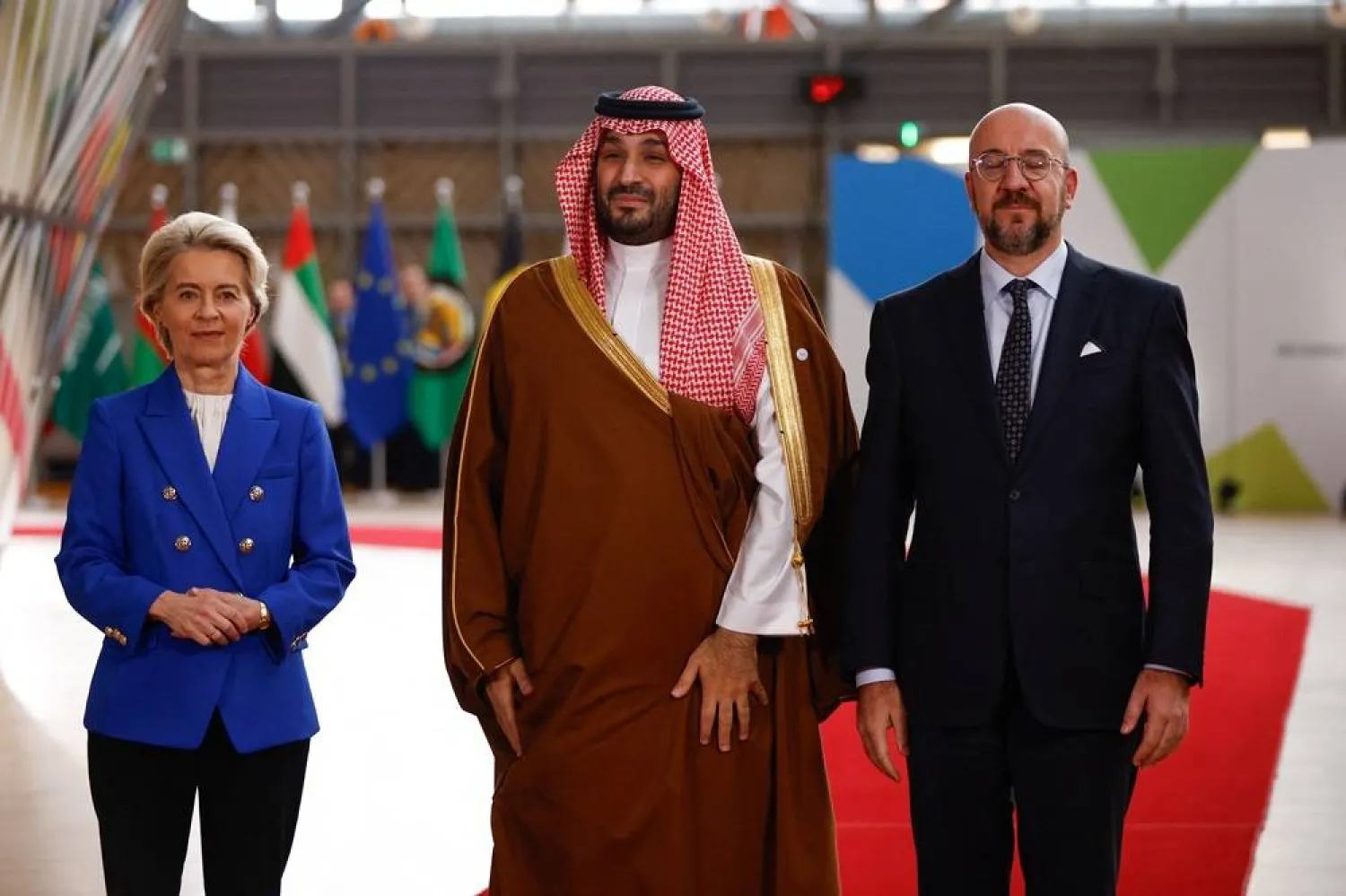The leaders of six Gulf nations and European Union met for an inaugural summit on Wednesday against a backdrop of turmoil in the Middle East and struggles to find a unified position on the war in Ukraine and relations with Russia.
Prince Mohammed bin Salman bin Abdulaziz Al Saud, Crown Prince and Prime Minister, led Saudi Arabia’s delegation to the meeting in Brussels.
The summit was expected to encompass everything from visas and trade to the situation in the Middle East.
Belgian Prime Minister Alexander De Croo said the summit was “long overdue” and added that “the economic ties between the European Union and the Gulf countries need to be strengthened."
“They are there, but they have the potential to be developed much, much further,” he said.
EU Commission President Ursula von der Leyen stressed that “to be strategic partners means to listen to each other, to respect each other, to trust each other.”
She also highlighted the need for cooperation on pressing geopolitical issues like the war in Ukraine and that of Israel against Hamas and Hezbollah groups.
“We cannot implement our economic ambitions without security,” she said.
The 27-nation EU has long had relations with the six-nation Gulf Cooperation Council, which include Qatar, Bahrain, United Arab Emirates, Saudi Arabia, Oman and Kuwait.









